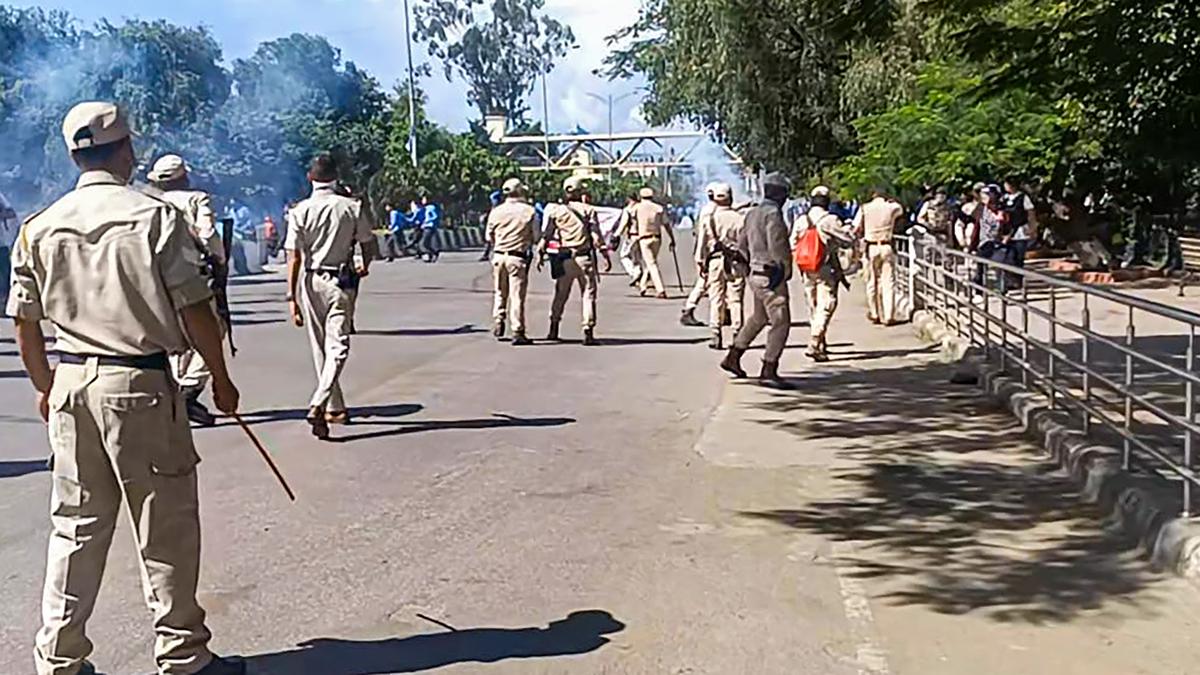Govt extends ban on 9 Meitei extremist groups by 5 years under UAPA

Govt extends ban on 9 Meitei extremist groups by 5 years under UAPA
The government, through the Ministry of Home Affairs, has extended the ban on nine Meitei extremist groups and their associate organizations for an additional five years. These groups, primarily operating in Manipur, have been banned due to their involvement in anti-national activities and their responsibility for fatal attacks on security forces.
As per the notification issued by the Ministry of Home Affairs, these Meitei extremist organizations have declared their professed aim to establish an independent nation by promoting the secession of Manipur from India through armed struggle. Additionally, they seek to incite the indigenous people of Manipur to support such secessionist activities.

The specific groups that have been banned for the next five years include the People’s Liberation Army (PLA) along with its political wing Revolutionary Peoples’ Front (RPF), the United National Liberation Front (UNLF), and its armed wing Manipur Peoples’ Army (MPA). This extension of the ban reflects the government’s commitment to curbing activities that pose a threat to national security and territorial integrity, particularly in regions like Manipur where secessionist movements have been active.
In addition to the previously mentioned groups, the government, through the Ministry of Home Affairs (MHA), has also extended the ban on several other Meitei extremist organizations for another five years. These include the Peoples’ Revolutionary Party of Kangleipak (PREPAK), the Kangleipak Communist Party (KCP), the Kanglei Yaol Kanba Lup (KYKL), the Coordination Committee (CorCom), and the Alliance for Socialist Unity Kangleipak (ASUK).
All of these Meitei extremist groups were initially banned by the MHA in November 2018 under the Unlawful Activities (Prevention) Act, 1967. The MHA, in its recent decision to extend the ban, cited the organizations’ engagement in activities that are considered prejudicial to the sovereignty and integrity of India. These activities include the use of armed means to achieve secessionist objectives, attacks and killings of security forces, police, and civilians in Manipur, as well as acts of intimidation, extortion, and looting of the civilian population for collecting funds for their organizations. The extension of the ban reflects the government’s ongoing efforts to address threats to national security posed by these extremist groups in the region.
The Ministry of Home Affairs (MHA) has outlined several concerns regarding the Meitei extremist organizations, stating that they are making efforts to establish contacts with sources abroad to influence public opinion. Additionally, these groups are seeking assistance in the form of arms and training to achieve their secessionist objectives. The MHA notes that these organizations maintain camps in neighboring countries for sanctuaries, training purposes, and clandestine procurement of arms and ammunition.

According to the MHA, if there is no immediate curb and control of these Meitei extremist organizations, there is a risk that they will mobilize their cadres to escalate secessionist, subversive, terrorist, and violent activities. The groups are also expected to propagate anti-national activities in collusion with forces inimical to the sovereignty and integrity of India. This includes engaging in killings of civilians and targeting police and security force personnel. Additionally, the organizations are likely to procure and induct illegal arms and ammunition from across the international border and extort substantial funds from the public for their unlawful activities.
The concerns outlined by the MHA highlight the potential threats posed by these extremist groups to national security and the need for decisive measures to curb their activities. The government’s intention to extend the ban on these organizations for another five years is rooted in its commitment to preventing the escalation of secessionist and violent activities in the region.
The Ministry of Home Affairs (MHA) has asserted that the activities of the Meitei extremist organizations are considered detrimental to the sovereignty and integrity of India, deeming them unlawful associations. In light of the circumstances, the central government has expressed the opinion that it is necessary to declare these Meitei extremist organizations as “unlawful associations” for an additional five years.
The state of Manipur has experienced episodes of violence, particularly since ethnic clashes erupted in May of the current year. Over 180 people have lost their lives in these clashes. The violence has been fueled by a range of grievances between ethnic Meitei and Kuki communities. One significant point of contention has been the proposal to grant Scheduled Tribe status to the Meiteis, which has subsequently been rolled back.
The demographic composition of Manipur includes Meiteis accounting for about 53% of the population, predominantly residing in the Imphal Valley. The tribal communities, including Nagas and Kukis, constitute around 40% of the population, primarily residing in the hill districts. The complex interplay of ethnic, cultural, and political factors has contributed to the tensions in the region, necessitating government measures to address the situation and maintain law and order.




